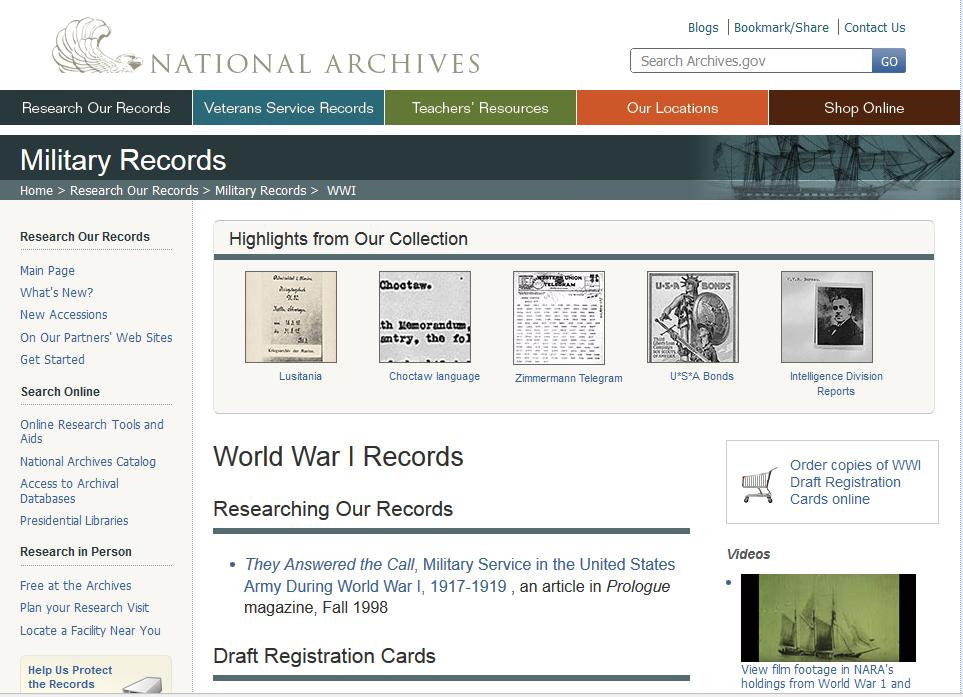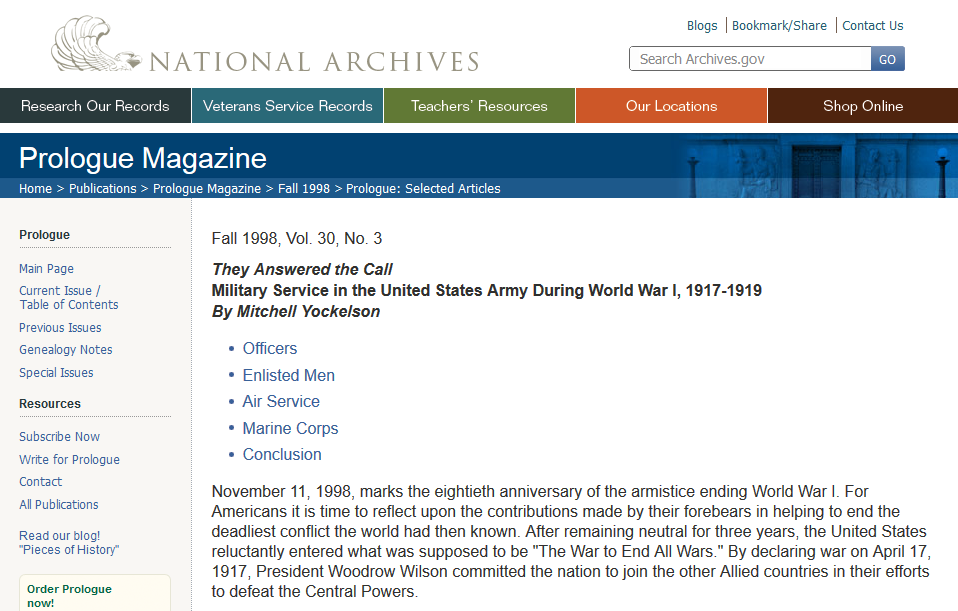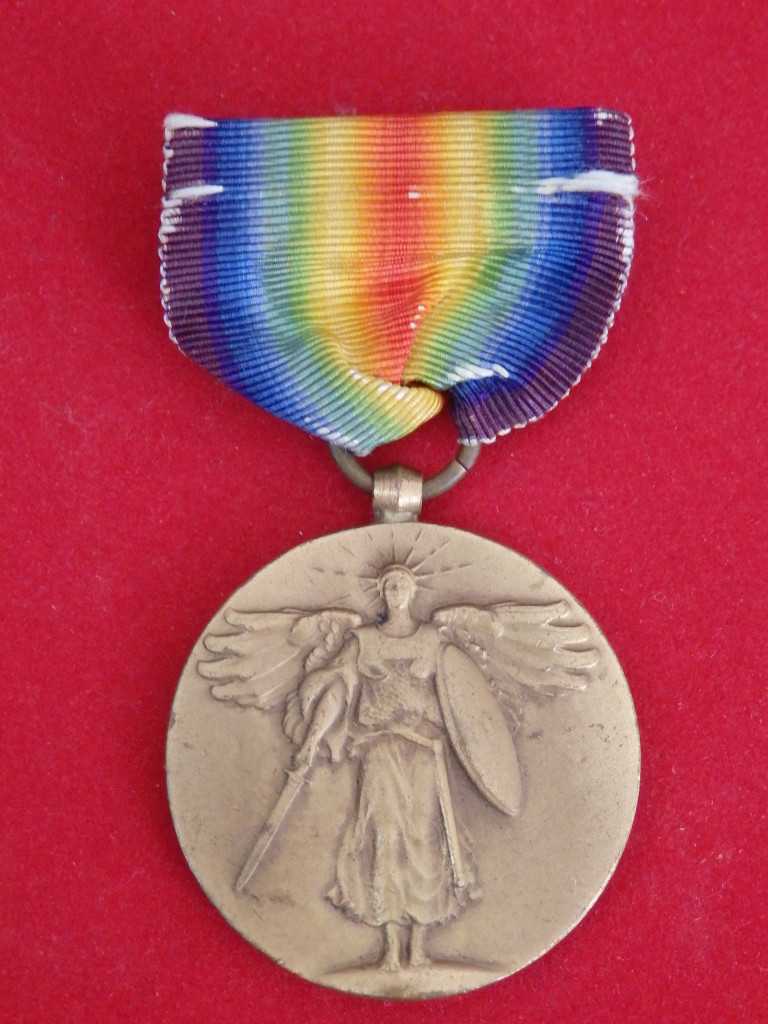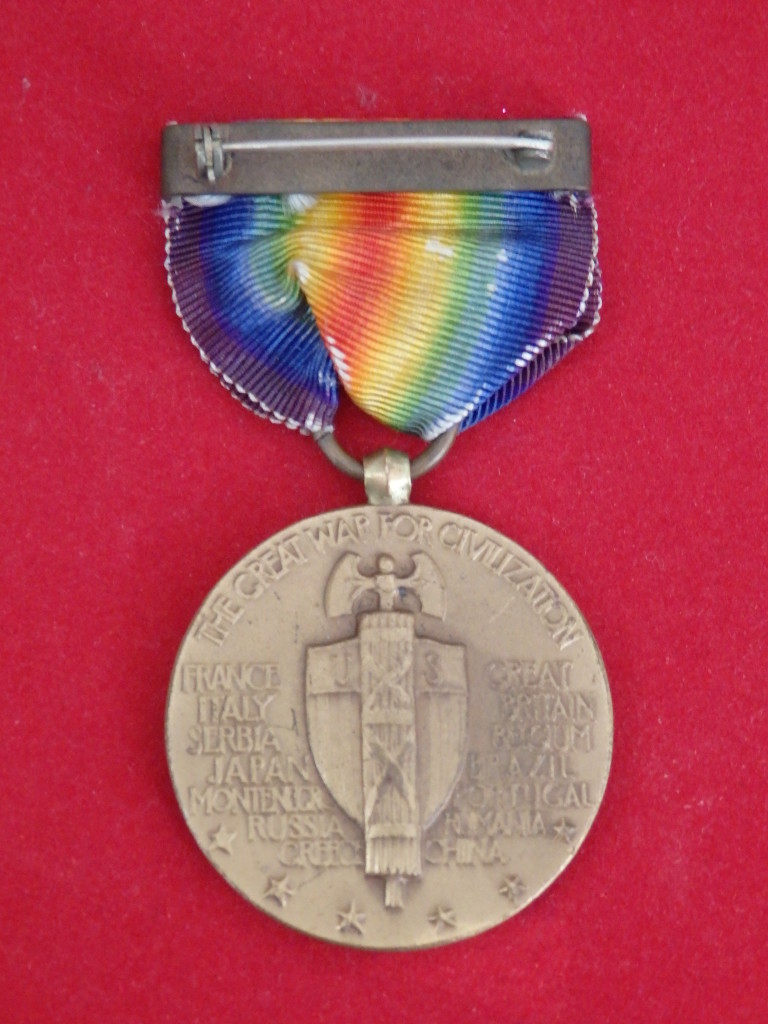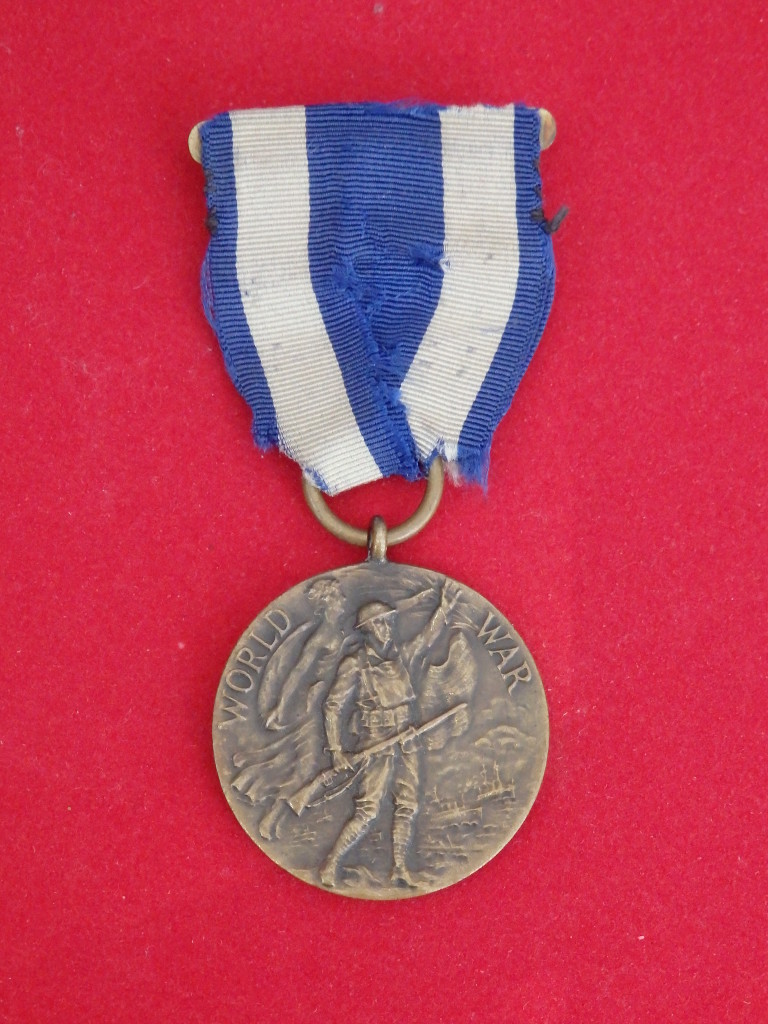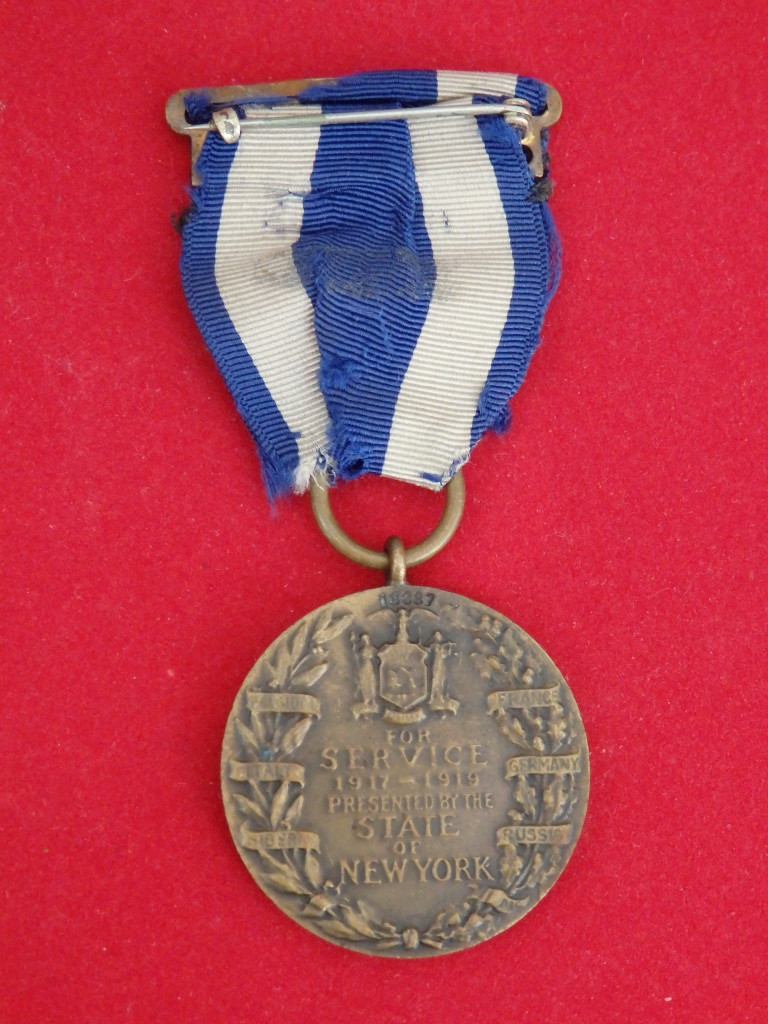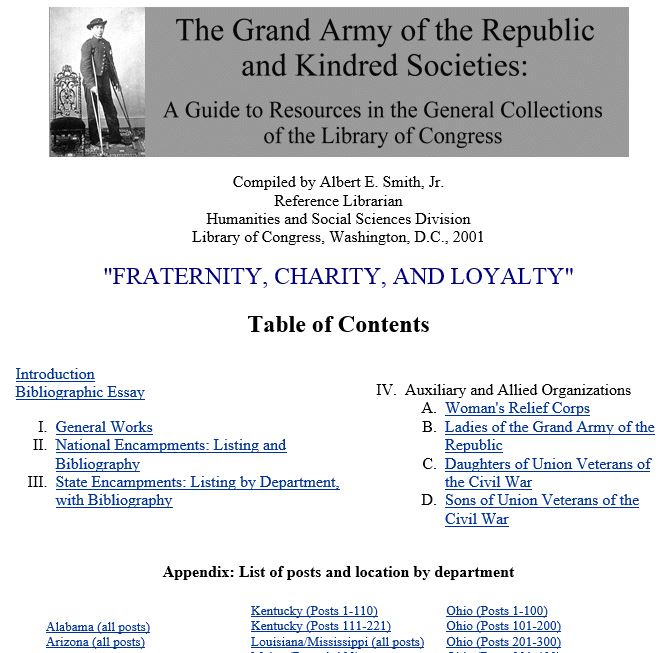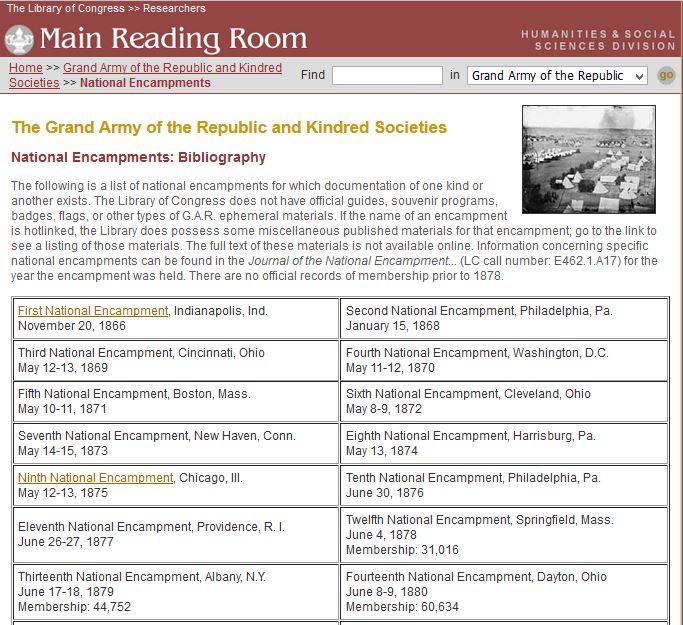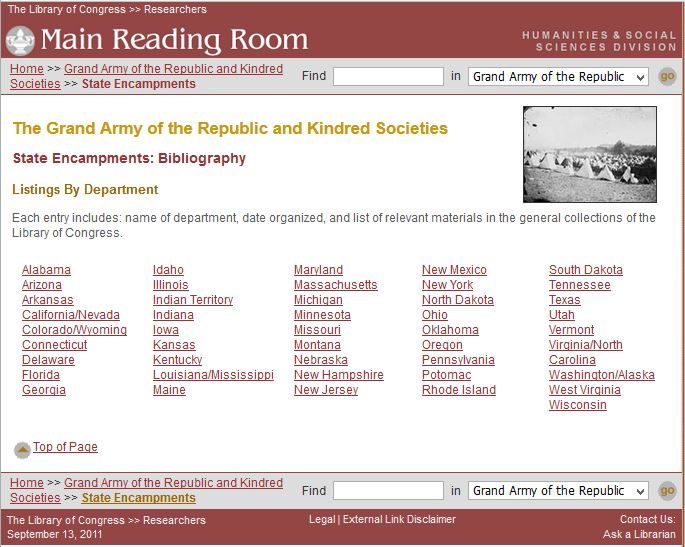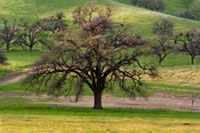5 NARA Resources for WWI Research
The National Archives and Records Administration (NARA) has many resources for you to research context for your WWI ancestors. Some of them are online.
- This is the place for you to begin researching NARA’s World War I Records. This page also includes links to the digitized versions of some of the most requested historical documents.
- Read an article in NARA’s Prologue magazine about finding your WWI Army ancestors. They Answered the Call, Military Service in the United States Army During World War I, 1917-1919 by Mitchell Yockelson in Prologue Fall 1998, Vol. 30, No. 3.
- If your ancestor was in The Spruce Production Division, gathering trees for building airplanes, you can learn more about it in GENEALOGY NOTES: THE ARMY in THE WOODS, Records Recount Work of World War I Soldiers In Harvesting Spruce Trees for Airplanes By Kathleen Crosman.
- Learn about how NARA is preserving movies about the Great War is discussed in Saving the Moving Images of World War I (Fall 2014) – The National Archives preservation staff is digitizing World War I motion pictures.
- Now that you know about NARA preserving the WWI films, you can check out the digitized films from World War I and World War II on YouTube

